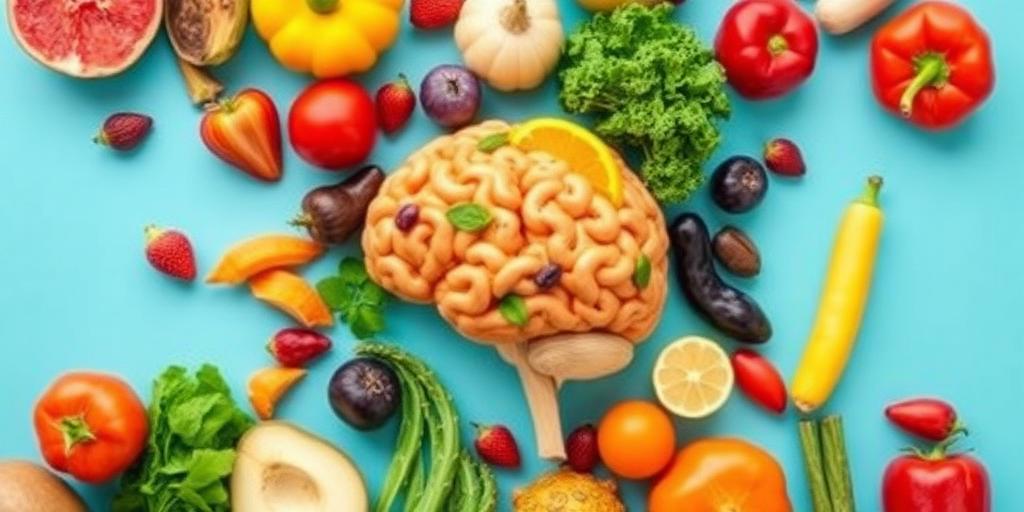The Profound Link Between Nutrition and Mental Well-being
In recent years, the connection between physical and mental health has become increasingly clear. Among the various aspects of physical health, nutrition stands out as a critical factor influencing our mental well-being. What we eat directly affects brain structure and function, which in turn impacts our mood, cognitive abilities, and overall mental health.
The Gut-Brain Connection
The gut-brain axis is a bidirectional communication system linking the central nervous system (CNS) with the enteric nervous system (ENS) in the gastrointestinal tract. This intricate network allows constant interaction between the gut and the brain, influencing both digestive and cognitive functions.
- Neurotransmitters: The gut produces a significant amount of neurotransmitters, such as serotonin (approximately 90%), which are vital for mood regulation. An unhealthy gut microbiome can disrupt neurotransmitter production, leading to mood disorders like depression and anxiety.
- Inflammation: Poor dietary choices can cause inflammation in the gut, which can then spread to the brain. Chronic inflammation is associated with an increased risk of mental health disorders.
- Nutrient Absorption: A healthy gut ensures efficient absorption of essential nutrients required for brain function. Deficiencies in vitamins and minerals can impair cognitive processes and emotional balance.
Key Nutrients for Mental Health
Several nutrients play a crucial role in supporting mental well-being. Incorporating these into your diet can have a positive impact on your mental state:
- Omega-3 Fatty Acids: Found in fish, flaxseeds, and walnuts, omega-3 fatty acids are essential for brain health. They help reduce inflammation and improve neuron function, which can alleviate symptoms of depression and anxiety.
- B Vitamins: B vitamins, especially B12 and folate, are vital for neurotransmitter synthesis and nerve function. Deficiencies in these vitamins can lead to mood disturbances and cognitive decline. Good sources include leafy greens, eggs, and fortified grains.
- Vitamin D: Often called the "sunshine vitamin," vitamin D is crucial for mood regulation. Low levels of vitamin D have been linked to depression. Sources include fatty fish, fortified foods, and sunlight exposure.
- Magnesium: This mineral plays a role in over 300 enzymatic reactions in the body, including those involved in brain function and mood regulation. Magnesium-rich foods include spinach, nuts, and whole grains.
- Antioxidants: Found in colorful fruits and vegetables, antioxidants protect the brain from oxidative stress and damage caused by free radicals. These include vitamins C and E, as well as compounds like flavonoids and polyphenols.
Dietary Patterns and Mental Health
Beyond individual nutrients, overall dietary patterns significantly influence mental health. Certain dietary patterns are associated with better mental well-being:
- Mediterranean Diet: Rich in fruits, vegetables, whole grains, lean proteins, and healthy fats, the Mediterranean diet is linked to a reduced risk of depression and cognitive decline. Its anti-inflammatory and antioxidant properties support brain health.
- Whole Foods Diet: Emphasizing minimally processed foods, this diet provides a wide range of nutrients that support overall health, including mental health. It avoids added sugars, unhealthy fats, and artificial additives that can negatively impact mood and cognition.
Foods to Limit or Avoid
Just as some foods enhance mental well-being, others can detract from it. Limiting or avoiding these foods can contribute to better mental health:
- Processed Foods: High in unhealthy fats, added sugars, and artificial additives, processed foods can promote inflammation and disrupt gut health, negatively impacting mood and cognitive function.
- Sugary Drinks: Excessive sugar intake can lead to mood swings, energy crashes, and an increased risk of depression. These drinks also provide empty calories with no nutritional value.
- Excessive Caffeine: While caffeine can provide a temporary boost in alertness, excessive consumption can lead to anxiety, insomnia, and irritability. Moderation is key.
- Alcohol: Alcohol can disrupt neurotransmitter function and impair mood regulation. While moderate alcohol consumption may have some health benefits, excessive drinking is linked to an increased risk of mental health disorders.
Practical Tips for Improving Mental Well-being Through Nutrition
Here are some actionable steps you can take to improve your mental well-being through nutrition:
- Eat a Balanced Diet: Focus on incorporating a variety of nutrient-dense foods from all food groups. This ensures you are getting a wide range of vitamins, minerals, and macronutrients.
- Prioritize Whole Foods: Choose minimally processed foods over packaged and processed options. Cook at home more often to control ingredients and portion sizes.
- Stay Hydrated: Dehydration can impair cognitive function and mood. Drink plenty of water throughout the day.
- Listen to Your Body: Pay attention to how different foods make you feel. Keep a food journal to track your meals and moods to identify potential triggers or beneficial foods.
- Seek Professional Guidance: Consult a registered dietitian or nutritionist for personalized dietary advice. They can help you create a meal plan tailored to your specific needs and health goals.
Conclusion
The link between nutrition and mental well-being is undeniable. By making informed dietary choices, we can support our brain health, regulate our moods, and enhance our overall mental well-being. Embracing a balanced, whole-foods diet rich in essential nutrients is a powerful step towards a healthier and happier life. Remember, nourishing your body is also nourishing your mind.









